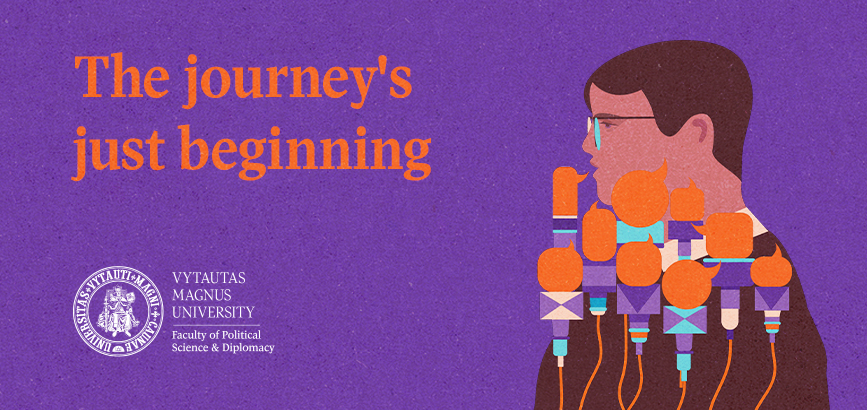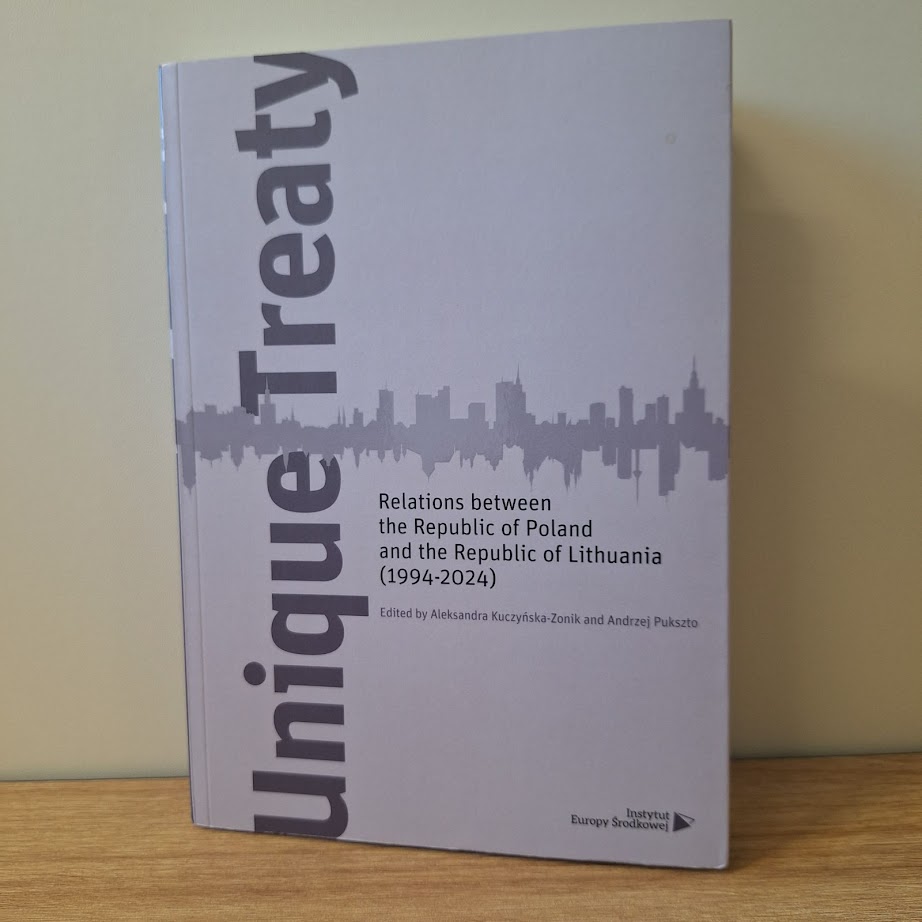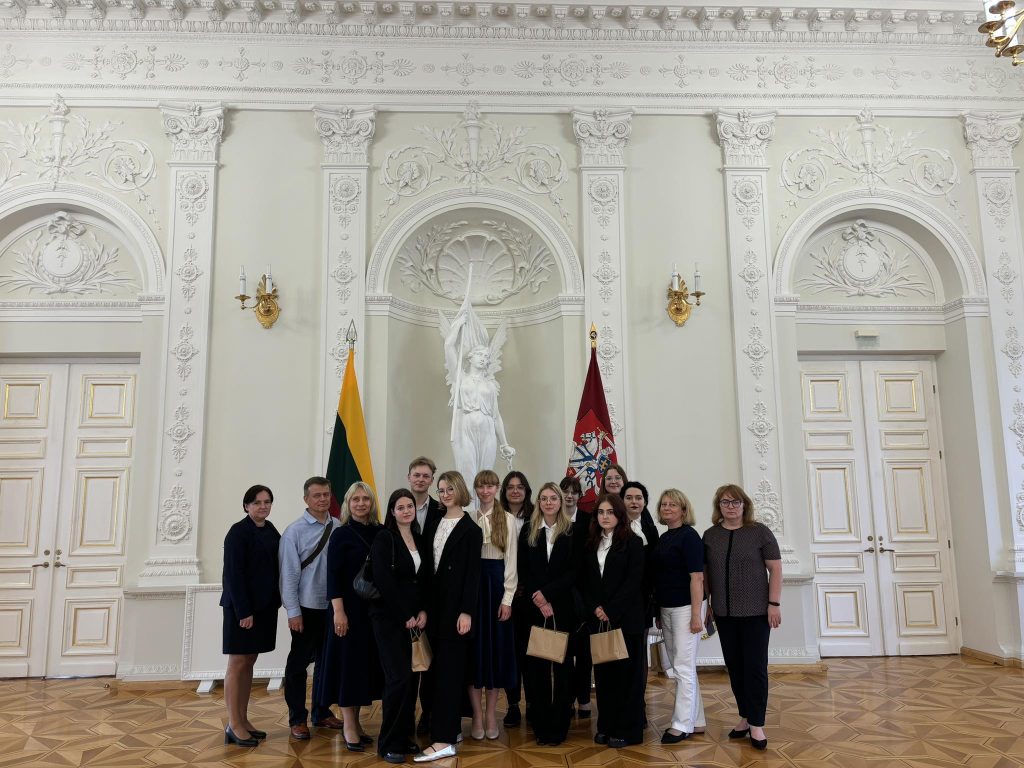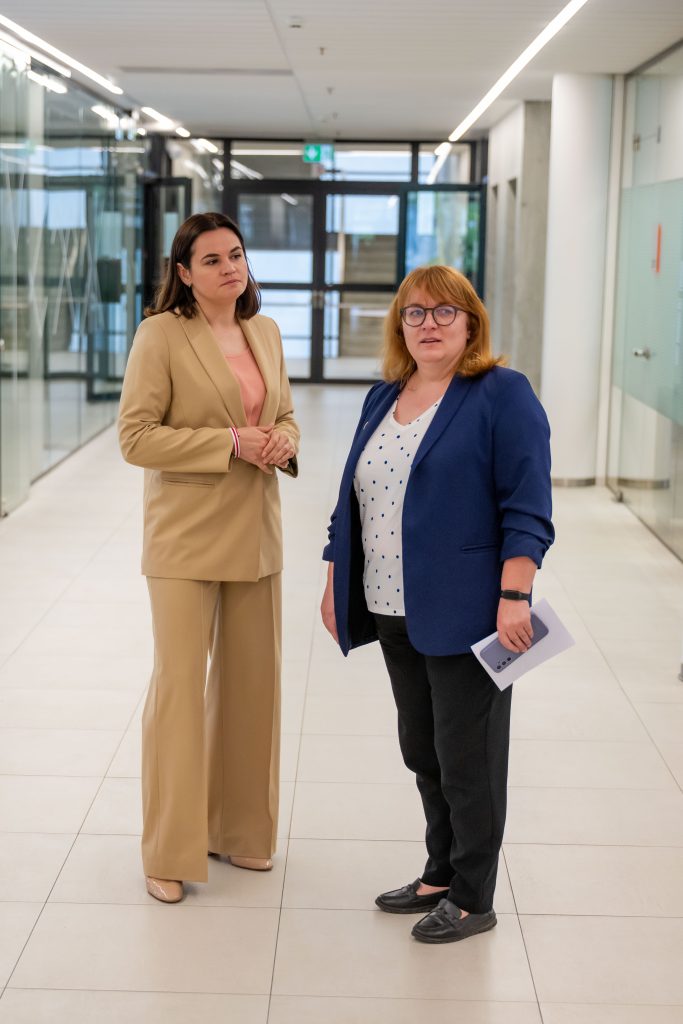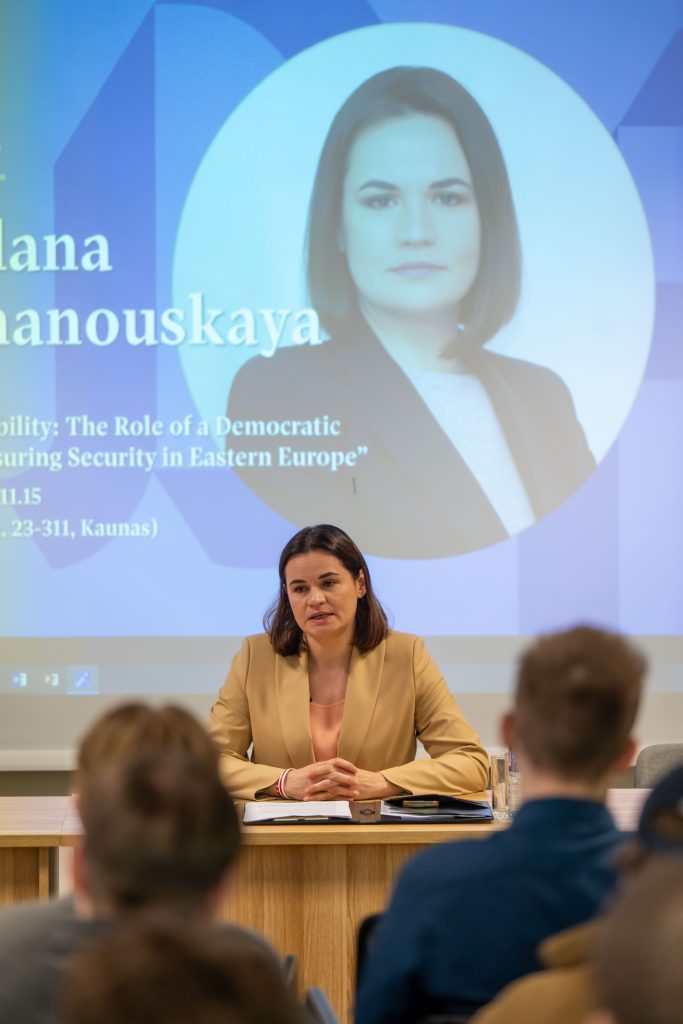S. Rakutienė and I. Unikaitė-Jakuntavičienė participated in COST project activities at the University of Cambridge
Assoc. Prof. Dr. Sima Rakutienė and Assoc. Prof. Dr. Ingrida Unikaitė-Jakuntavičienė, took part in the COST project (CA22121) “Rising Nationalisms, shifting geopolitics and the Future of European Higher Education” partners’ meeting at the University of Cambridge, on September 19-20.
This COST project brings together researchers from political science and education from 37 different countries, including the University of Cambridge. The project, which runs until 2027, aims to explore how the rise of new nationalisms and geopolitical factors are creating tensions and increasing pressure on the openness of European higher education and research, and what implications this has for the future of Europe.
More information on the project:
https://www.cost.eu/actions/CA22121/#tabs+Name:Description
28th Annual Central European Political Science Association (CEPSA) Conference
We are pleased to announce that the Central European Political Science Association (CEPSA), in partnership with the Lithuanian Political Science Association and Vytautas Magnus University, will host the 28th Annual CEPSA Conference, titled “Twenty Years of EU Membership: Lessons Learned, Challenges, and Opportunities.”
The conference will take place at Vytautas Magnus University, Faculty of Political Science and Diplomacy, in Kaunas, Lithuania, on October 3rd and 4th, 2024.
This conference will bring together political scientists, researchers, and practitioners from Central and Eastern Europe and beyond, creating a platform for insightful discussions and reflections on the past two decades of EU membership. The event will focus on the achievements, challenges, and future opportunities for EU member states in the region.
The conference aims to foster interdisciplinary exchange, offering both theoretical and empirical contributions—ranging from comparative studies to single-country analyses—all centered around the theme of the 20-year EU membership milestone.
We look forward to welcoming participants for this enriching academic event.
Date: October 3-4, 2024
Venue: Vytautas Magnus University, Faculty of Political Science and Diplomacy, V. Putvinskis str. 23, Kaunas, Lithuania
For more details, practical info, please stay updated via the official university webpage.
New Publication: Unique Treaty. Relations between the Republic of Poland and the Republic of Lithuania (1994-2024) Edited by Aleksandra Kuczyńska-Zonik and Andrzej Pukszto
There was a chance that the 30th anniversary of the Treaty on Friendly Relations and Good Neighbourly Cooperation of the Republic of Lithuania and the Republic of Poland would be forgotten or stay in the shadows. However, the Treaty played a big role in the strengthening the security and international position of both countries, and it is impossible to imagine the process of Euro-Atlantic integration without it. This publication presents the current state of Lithuania-Polish relations. Polish and Lithuanian researchers have attempted to analyze various areas of cooperation, paying attentions to its effectiveness, but also noting current and future challenges. Thus, they point out that security, economy, media, memory policy and national minorities are important dimensions of bilateral cooperation.
Unique Treaty. Relations between the Republic of Poland and the Republic of Lithuania (1994-2024)
ISBN: 978-83-67678-44-5
Edited by: Aleksandra Kuczyńska-Zonik, Andrzej Pukszto
Online access to the book: PDF
Second Edition of the Summer School of Diplomatic Etiquette and Protocol: June 5-7, 2024, Vilnius
From June 5 to 7, 2024, Vilnius, the capital of Lithuania, hosted the second edition of the Summer School of Diplomatic Etiquette and Protocol. This event brought together a diverse group of students and professors from the Political Science department of Silesia University in Katowice, Poland. The initiative aimed to provide participants with a comprehensive understanding of diplomatic practices, etiquette, and protocol. The program was organized by the Vytautas Magnus University (VMU) Faculty of Political Science and Diplomacy, led by Dean Šarūnas Liekis and Vice Dean Aistė Žemaitytė.
Key Activities and Visits
Supreme Election Commission of Lithuania The summer school kicked off with a visit to the Supreme Election Commission of Lithuania. Here, students were introduced to the intricacies of Lithuania’s electoral processes and the importance of maintaining transparency and fairness in elections. The visit provided a practical perspective on how election commissions operate and their role in upholding democratic principles.
Discussion at the Presidency of the Republic of Lithuania The group then participated in a discussion session at the Presidency of the Republic of Lithuania. This meeting was a highlight of the program, offering insights into the workings of the highest office in the country. Students engaged in discussions about the functions of the presidency, the challenges faced by the head of state, and the role of diplomatic protocol in presidential affairs. The session emphasized the importance of etiquette and protocol in maintaining the dignity and efficiency of state operations.
Geopolitical Challenges at the Polish Embassy in Vilnius Another significant aspect of the summer school was the visit to the Polish Embassy in Vilnius, where students delved into discussions on contemporary geopolitical challenges. This session provided a platform for analyzing current international issues, particularly those affecting Poland and Lithuania. Students and professors exchanged views on geopolitical strategies, international relations, and the role of diplomatic missions in fostering bilateral ties. The discussions highlighted the importance of understanding geopolitical dynamics in effective diplomacy.
Learning Objectives and Outcomes
The primary objective of the Summer School of Diplomatic Etiquette and Protocol was to equip participants with the knowledge and skills necessary for navigating the complex world of international relations. The program covered various aspects of diplomatic protocol, including formal communication, ceremonial procedures, and the subtleties of international etiquette.
Participants left with a deeper understanding of:
- The structure and function of key governmental and diplomatic institutions.
- The significance of protocol in international and national settings.
- Practical skills in diplomatic communication and etiquette.
- Awareness of current geopolitical issues and their implications for diplomacy.
NAWA Project – Strategic Partnership
The summer school was part of a broader initiative under the NAWA Project – Strategic Partnership. This project aims to foster international collaboration in education and research. By bringing together students and faculty from different countries, the project promotes cross-cultural understanding and academic exchange. The summer school in Vilnius exemplifies how strategic partnerships can enhance educational experiences and prepare students for global challenges.
Professor Egdūnas Račius: “National Muslim Churches? Churchification of Muslim Religious Organizations in post-communist Central Asia”
The nation states in Central Asia are effectively post-colonial and governance of religion in general and of Islam in particular in them bears heavy traits of colonial (namely, imperial Russian) rule. The former overlord sought to control religiosity and religious authority of minority (in this case, Muslim) faith communities through founding, if not state-run then tightly state-controlled, religious institutions. Those institutions survived the communist intermezzo and in the post-communist era, by the will of local regimes, are being (or, some would argue, have already been) turned into nothing less than national Muslim Churches: sociologically speaking, their organizational structures and modus operandi resemble Churches as they were first analysed and conceptualized by Max Weber and Ernst Troeltsch.
Purported churchification of Muslim religious organizations in today’s Central Asia, as indeed anywhere else, is not to be taken for their Christianization – there is no talk about any shift in theology or rituals. Rather, the concerned Muslim religious organizations have become churches (or, at least church-like religious organizations) as they, being institutionalized (legally recognized) religious communities and encompassing the totality of believers of the faith, understood here as a set of dogmas, rituals, and ethics, have ecclesiastical-bureaucratic structures staffed by professional (ordained) clergy and which have a positive relationship and attitude to society and the State. Moreover, they have been made into national Muslim Churches to which the entire Muslim populations of the respective countries have been assigned and whose form of Islamic religiosity has been declared the sole ‘right’ for the country. This churchification of Muslim religious organizations, foremost top-down, by the regimes, but also bottom-up, by the leadership of the organizations themselves, has been having debilitating consequences for the development of Islam in these recently created nation states, as it denies natural heterogeneity of the Muslim commonwealth and the plurality of forms of Islamic religiosity and securitizes those of them deemed ‘deviant’.
An IASH Work-in-Progress seminar, delivered by VMU Regional department Professor Egdūnas Račius (IASH-Alwaleed Research Fellow, March – May 2024):
Belarusian Politician Sviatlana Tsikhanouskaya Visited VMU
On May 6, 2024, Belarusian politician Sviatlana Tsikhanouskaya visited Vytautas Magnus University. During the meeting with the academic community, S. Tsikhanouskaya delivered a speech on Regional Stability: The Role of Democratic Belarus in Ensuring Security in Eastern Europe. The aim of the lecture was to evaluate the role of Belarus in the context of regional stability and security in Eastern Europe, especially considering the country’s political situation and democratization opportunities.
According to Aistė Žemaitytė, vice-dean of the VMU’s Faculty of Political Science and Diplomacy, who was organizing the visit, this is a unique opportunity to discuss the role of Belarus in regional stability and possible future scenarios with the Belarusian opposition leader Sviatlana Tsikhanouskaya during the lecture.
Sviatlana Tsikhanouskaya is a Belarusian national leader, the head of the United Transitional Government and the president-elect of Belarus, who according to independent observers won the 2020 elections. August 9 presidential election against the long-time dictator Aliaksandr Lukashenka.
After the start of the Russian invasion of Ukraine on February 24th, 2022, Tsikhanouskaya reformatted the movement’s leadership by creating and chairing the United Transition Cabinet, the movement’s decision-making centre. Belarusian anti-war activists led by Tsikhanouskaya conducted underground resistance in Belarus by sabotaging the railway transportation of Russian troops as well as volunteering for Belarusian-staffed units fighting for Ukraine.
As the leader of the Belarusian democratic movement, she has visited 28 countries, gathering support and advocating for the release of more than 1500 political prisoners and a peaceful transition of power through free and fair elections. In meetings with President J. Biden, Chancellor A. Merkel, President E. Macron, President U. von der Leyen, President Charles Michel, Prime Minister Trudeau and other world leaders, Tsikhanouskaya emphasised the need for a braver response to the actions of the Belarusian dictatorship.
2020-2023 Sviatlana Tsikhanouskaya became a symbol of the peaceful struggle for democracy and strong female leadership. In addition to dozens of awards, she is a recipient of the European Parliament’s Sakharov Prize in 2022. Laureate of the International Four Freedoms Award and the Charlemagne Prize. in 2021 and 2022 She was nominated for the Nobel Peace Prize by Lithuanian President Gitanas Nausėda and members of the Norwegian Parliament, respectively. A. Tsikhanouskaya was recognized as one of Bloomberg’s 50 most powerful people, Financial Times’ 12 most powerful women and Politico’s 28 most powerful Europeans.
Sviatlana Tsikhanouskaya’s visit to VMU: regional stability – the role of democratic Belarus in ensuring security in Eastern Europe
On May 6, 2024, Belarusian politician Sviatlana Tsikhanouskaya will visit Vytautas Magnus University (V. Putvinskio str. 23-311). During the meeting with the academic community, S. Tsikhanouskaya will deliver a speach on Regional Stability: The Role of Democratic Belarus in Ensuring Security in Eastern Europe. The aim of the lecture will be to evaluate the role of Belarus in the context of regional stability and security in Eastern Europe, especially considering the country’s political situation and democratization opportunities. The lecture will analyze how internal political and economic factors of Belarus can affect regional stability, as well as evaluate its potential role in the democratic form in Eastern Europe. According to Aistė Žemaitytė, vice-dean of the Faculty of Political Sciences and Diplomacy, who is organizing the visit, this is a unique opportunity to discuss the role of Belarus in regional stability and possible future scenarios with the Belarusian opposition leader Sviatlana Tsikhanouskaya during the lecture. It is expected that the participants of the lecture will actively engage and exchange views in order to gain a deeper understanding of this important issue of regional security.
Sviatlana Tsikhanouskaya is a Belarusian national leader, the head of the United Transitional Government and the president-elect of Belarus, who according to independent observers won the 2020 elections. August 9 presidential election against the long-time dictator Aliaksandr Lukashenka.
After the start of the Russian invasion of Ukraine on February 24th, 2022, Tsikhanouskaya reformatted the movement’s leadership by creating and chairing the United Transition Cabinet, the movement’s decision-making centre. Belarusian anti-war activists led by Tsikhanouskaya conducted underground resistance in Belarus by sabotaging the railway transportation of Russian troops as well as volunteering for Belarusian-staffed units fighting for Ukraine.
As the leader of the Belarusian democratic movement, she has visited 28 countries, gathering support and advocating for the release of more than 1500 political prisoners and a peaceful transition of power through free and fair elections. In meetings with President J. Biden, Chancellor A. Merkel, President E. Macron, President U. von der Leyen, President Charles Michel, Prime Minister Trudeau and other world leaders, Tsikhanouskaya emphasised the need for a braver response to the actions of the Belarusian dictatorship.
2020-2023 Sviatlana Tsikhanouskaya became a symbol of the peaceful struggle for democracy and strong female leadership. In addition to dozens of awards, she is a recipient of the European Parliament’s Sakharov Prize in 2022. Laureate of the International Four Freedoms Award and the Charlemagne Prize. in 2021 and 2022 She was nominated for the Nobel Peace Prize by Lithuanian President Gitanas Nausėda and members of the Norwegian Parliament, respectively. A. Tsikhanouskaya was recognized as one of Bloomberg’s 50 most powerful people, Financial Times’ 12 most powerful women and Politico’s 28 most powerful Europeans.
Call for 28th Annual Conference of Central European Political Science Association (CEPSA)
Central European Political Science Association (CEPSA) in partnership with Lithuanian Political Science Association and Vytautas Magnus University invites political and other scientists and practitioners from the Central and Eastern European region and beyond to send proposals for paper and panels for the 28th Annual Central European Political Science Association conference titled Twenty years of EU membership: lessons learned, challenges and opportunities. Conference will be held at the Vytautas Magnus University, Faculty of Political Science and Diplomacy in Kaunas (Lithuania) on 3rd and 4th of October 2024.
Call for panels and papers is open until 15 May 2024. Proposals should be submitted to cepsa2024@vdu.lt
The conference aims to bring together political science researchers to engage in insightful discussions, reflections, and analyses on the main achievements, lessons learned from the past, challenges faced, and opportunities ahead for Central and Eastern European (CEE) countries, which are members of the European Union, over the past two decades. The conference serves as a platform for interdisciplinary exchange and fostering new perspectives. The conference panels will feature both theoretical and empirical contributions, including comparative or single-country studies, all related to the general theme dedicated to the twenty years of EU membership. We invite papers from various subfields and theoretical and methodological approaches. Please see below for a list of potential panel topics:
- Comparative Politics (EP elections in CEE countries, Electoral processes in Central and Eastern Europe, Political parties in CEE countries, Populism and autocratic trends in CEE countries, Political Leadership of CEE countries)
- International Relations (The role of EU in world politics, EU Transatlantic relations, Challenges to the EU Foreign and Security policy)
- Public Polic (EU enlargement policy from CEE countries perspective, Reforms of EU Migration and Asylum policies, regional integration in the CEE region, Socio-economic development and green transition)
- Security Studies (Security challenges for CEE countries, The Russia’s war in Ukraine and its implications, Cyber-security threats)
- Political Communication (Disinformation in International Relations, Disinformation as a threat to democracy, Political campaign communication, social media in political communication)
Panel and paper topics are not limited to the suggested topics mentioned earlier. The conference is open to researchers from all countries with an interest in Central and Eastern European affairs.
Organizing committee of the conference:
Ingrida Unikaitė-Jakuntavičienė, Chair of the committee, Vytautas Magnus University, Lithuania
Miro Haček, President of CEPSA, University of Ljubljana/Slovenia
Petr Just, General Secretary of CEPSA, Metropolitan University Prague/Czech Republic
Sima Rakutienė, Vytautas Magnus University, Lithuania
Aistė Žemaitytė, Vytautas Magnus University, Lithuania
Rimgailė Kasparaitė, Vytautas Magnus University, Lithuania
Robertas Eismontas, Vytautas Magnus University, Lithuania
The Young European Ambassadors presentation
 The Young European Ambassadors (YEAs) initiative is a non-political, voluntary, vibrant network connecting and building bridges of friendship among young people from Armenia, Azerbaijan, Belarus, Georgia, the Republic of Moldova, Ukraine and the EU Member States and the United Kingdom. The aim of the network is to raise awareness about the EU’s cooperation with its Eastern partner countries, showcase the tangible results of this cooperation, contribute to policy dialogue on various topics, help increase civic activism and work together for a better future.
The Young European Ambassadors (YEAs) initiative is a non-political, voluntary, vibrant network connecting and building bridges of friendship among young people from Armenia, Azerbaijan, Belarus, Georgia, the Republic of Moldova, Ukraine and the EU Member States and the United Kingdom. The aim of the network is to raise awareness about the EU’s cooperation with its Eastern partner countries, showcase the tangible results of this cooperation, contribute to policy dialogue on various topics, help increase civic activism and work together for a better future.
Come to offline presentation in the VMU where Young European Ambassadors from Ukraine and Belarus introduce you with their ways to membership, share their ideas of new projects for this year in the EU and our region in particular and describe how to apply and become one of them soon.
When: 23 05 2023, 15:00 p.m.
Where: V. Putvinskis str. 23 – 110
We hope to answer all questions that you will prepare for us!
More info about presenters:
https://euneighbourseast.eu/young-european-ambassadors/ambassadors/usevalad-lahun/
https://euneighbourseast.eu/young-european-ambassadors/ambassadors/sofiia-bohdanova/
Public lecture by prof. Hannu Nieminen – Why has the EU been late in regulating social media platforms?
Public lecture by prof. Hannu Nieminen – March 3, 13:00 o‘clock at Putvinskio st. 23, room 106.
Why has the EU been late in regulating social media platforms?
In 2021 and 2022, the European Union (EU) launched a series of proposals aimed at improved internet regulation, benefiting both European industries and services, as well as European consumers or internet users. These measures have been watched from around the globe because they can be seen as a first attempt to create a ‘meta-level’ regulatory environment for the digital economy that effectively challenges the domination of the Big Tech conglomerates of the US and China.
However, even if the new EU regulation proves effective, how effective can they be in challenging the fundamental dynamics of the internet and digital economy that the internet enables? I the lecture, I will discuss why the EU has been late in regulating social media platforms, which play a central role in the internet-based digital economy. I will base my argumentation on a critical reading of the history of the internet and its regulation from its early days to the 2020s.
The lecture is based on an article on the same title by Hannu Nieminen, University of Helsinki & Vytautas Magnus University, Claudia Padovani, University of Padova, and Helena Sousa, University of Minho, to be published in Javnost/The Public in spring 2023.




